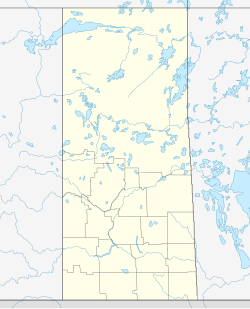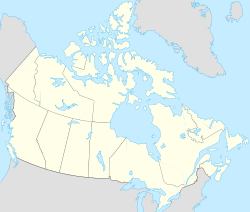Kenaston
| Village of Kenaston | |
|---|---|
| Village | |

Kenaston's Business District
|
|
| Motto: Heritage, Spirit, Vision | |
| Location of Kenaston in Saskatchewan | |
| Coordinates: 51°30′N 106°17′W / 51.500°N 106.283°W | |
| Country | Canada |
| Provinces and territories of Canada | Saskatchewan |
| Rural Municipalities (R.M.) | McCraney No. 282 |
| Settled | 1902 |
| Bonnington, NWT Post Office Founded | October 1, 1904 |
| Kenaston, SK Post office Founded | January 1, 1906 |
| Government | |
| • Mayor | ML Whittles |
| Area | |
| • Land | 1.17 km2 (0.45 sq mi) |
| Population (2011) | |
| • Total | 285 |
| • Density | 243.5/km2 (631/sq mi) |
| Postal code | S0G 2N0 |
| Highways |
|
| Website | Official website |
Kenaston is a village in the rural municipality of McCraney No. 282, in the Canadian province of Saskatchewan.
Kenaston is located on Highway 11 (Louis Riel Trail) at the junction of Highway 15 and is also near Highway 19. This is a scenic area of Saskatchewan situated within the rolling Allan Hills. Kenaston is located between Danielson Provincial Park and Blackstrap Provincial Park. The village population according to the municipality and 2011 census was 285 persons.
CN currently serves Kenaston; however the line terminates at Davidson where the Last Mountain Railway (Craik subdivision) begins and takes over the remainder of the line.
The settlement was first known as Bonnington Springs in the District of Assiniboia in the Northwest Territories but usually referred to as "Bonnington". In late 1905, when Saskatchewan became a province, the name was changed to “Kenaston”, honoring F.E. Kenaston, who was the Vice President of the Saskatchewan Valley Land Company. The railroad reached Bonnington in late 1889, but there is no record of any permanent residents until 1902. In that year the Saskatchewan Valley Land Company was formed made up of wealthy men from the United States. The president was Colonel Andrew Duncan Davidson and F. E. Kenaston was vice-president.
The Saskatchewan Valley Land Company purchased 839,000 acres (3,400 km2) of land from the railway for $1.53 an acre and another 250,000 acres (1,000 km2) from the Dominion Government for $1.00 an acre. By adopting spectacular methods of advertising and employing dozens of land agents, the wide open spaces between Regina and Saskatoon were peopled with hundreds of settlers in the time between 1902 and 1910.
...
Wikipedia


